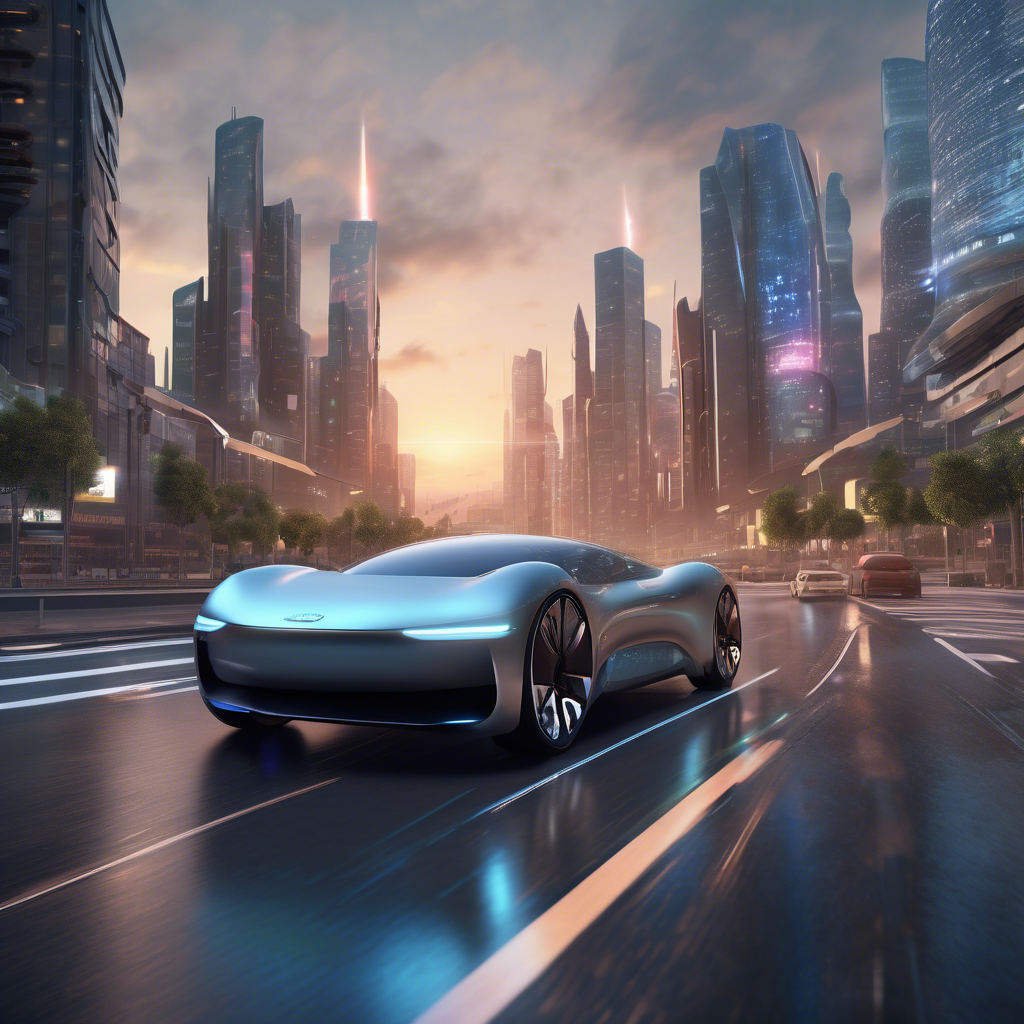AI Advancements Driving Safety and Adoption of Autonomous Vehicles

Brief news summary
Advancements in artificial intelligence (AI) are greatly improving the safety and reliability of autonomous vehicles, facilitating their integration into daily transportation. Enhanced AI algorithms improve perception, decision-making, and responsiveness, reducing accident risks and promoting safer roads. Technologies like sensor fusion, machine learning, and real-time data analysis allow self-driving cars to accurately detect pedestrians, vehicles, road signs, and obstacles, adapting swiftly to changing environments. Extensive testing across urban areas, highways, and adverse weather ensures consistent performance. Building public trust through transparency, demonstrations, and pilot programs is essential to overcome skepticism. Despite significant progress, challenges remain, including regulatory compliance, liability concerns, data privacy, and public acceptance of AI control. Ongoing education and positive user experiences are vital for broader adoption. Overall, continuous AI-driven advancements address these issues, promising safer roads, better traffic flow, and improved mobility as autonomous vehicles become a core part of everyday life.Advancements in artificial intelligence (AI) are making considerable progress in addressing the crucial safety issues linked to autonomous vehicles, thus moving these vehicles closer to widespread adoption. The automotive sector has experienced notable enhancements in AI algorithms that improve vehicle perception, decision-making, and response times. Together, these technological advances work to decrease accident risks and boost overall road safety. Advanced AI algorithms are essential in how autonomous vehicles interpret their environment. Utilizing sophisticated sensor fusion, machine learning, and real-time data processing, self-driving cars can identify pedestrians, other vehicles, road signs, and obstacles with unprecedented accuracy. This improved perception facilitates faster and more precise decision-making, allowing vehicles to react effectively to changing driving conditions. Manufacturers conduct extensive testing of these AI-driven systems to ensure their reliability under various driving scenarios, including busy urban streets filled with pedestrians, high-speed highways, and difficult weather such as rain, fog, or snow. Rigorous testing procedures aim to replicate a wide array of situations, guaranteeing that autonomous vehicles can manage unforeseen events safely and efficiently. Gaining public trust is crucial for integrating autonomous vehicles into daily life. Therefore, manufacturers and researchers maintain transparency regarding safety protocols and openly share test outcomes and safety features.
Public demonstrations and pilot programs introduce self-driving technology to consumers, helping to reduce anxiety and skepticism by highlighting the reliability and advantages of autonomous vehicles. Despite this promising progress, numerous challenges remain on the road to mainstream adoption of self-driving cars. Regulatory approval represents a significant obstacle as governments strive to develop frameworks that ensure safety without hindering innovation. Regulations must evolve to handle issues such as liability in accidents, data privacy, and performance standards for autonomous systems. Public acceptance also plays a vital role. Many individuals worry about losing control over their vehicles and whether the technology will make appropriate decisions in critical moments. Continuous education and positive user experiences are essential in shifting these perceptions and boosting confidence in autonomous vehicle technologies. In summary, AI advancements are paving the way for a future where autonomous vehicles become commonplace on roads globally. By enhancing safety features, increasing reliability through thorough testing, and actively engaging with regulators and the public, the industry is steadily overcoming adoption barriers. As these vehicles become part of everyday transportation, they hold the promise to significantly reduce traffic accidents, improve flow, and offer greater mobility options for diverse communities.
Watch video about
AI Advancements Driving Safety and Adoption of Autonomous Vehicles
Try our premium solution and start getting clients — at no cost to you

I'm your Content Creator.
Let’s make a post or video and publish it on any social media — ready?
Hot news

15 Ways Sales Has Changed This Year in the Age of…
Over the last 18 months, Team SaaStr has immersed itself in AI and sales, with a major acceleration starting June 2025.

OpenAI's GPT-5: What We Know So Far
OpenAI is gearing up to launch GPT-5, the next major advancement in its series of large language models, with the release expected in early 2026.

AI in SEO: Transforming Content Creation and Opti…
Artificial intelligence (AI) is swiftly reshaping the field of content creation and optimization within search engine optimization (SEO).

AI Video Conferencing Solutions Improve Remote Wo…
The shift to remote work has highlighted the crucial need for effective communication tools, leading to the rise of AI-powered video conferencing solutions that enable seamless collaboration across distances.

AI In Medicine Market Size, Share, Growth | CAGR …
Overview The Global AI in Medicine Market is forecasted to reach approximately USD 156

Google's Danny Sullivan & John Mueller On SEO For…
John Mueller from Google hosted Danny Sullivan, also from Google, on the Search Off the Record podcast to discuss "Thoughts on SEO & SEO for AI

Lexus takes generative AI for a spin in new holid…
Dive Brief: Lexus has launched a holiday marketing campaign created using generative artificial intelligence, according to a press release
AI Company
Launch your AI-powered team to automate Marketing, Sales & Growth

and get clients on autopilot — from social media and search engines. No ads needed
Begin getting your first leads today








